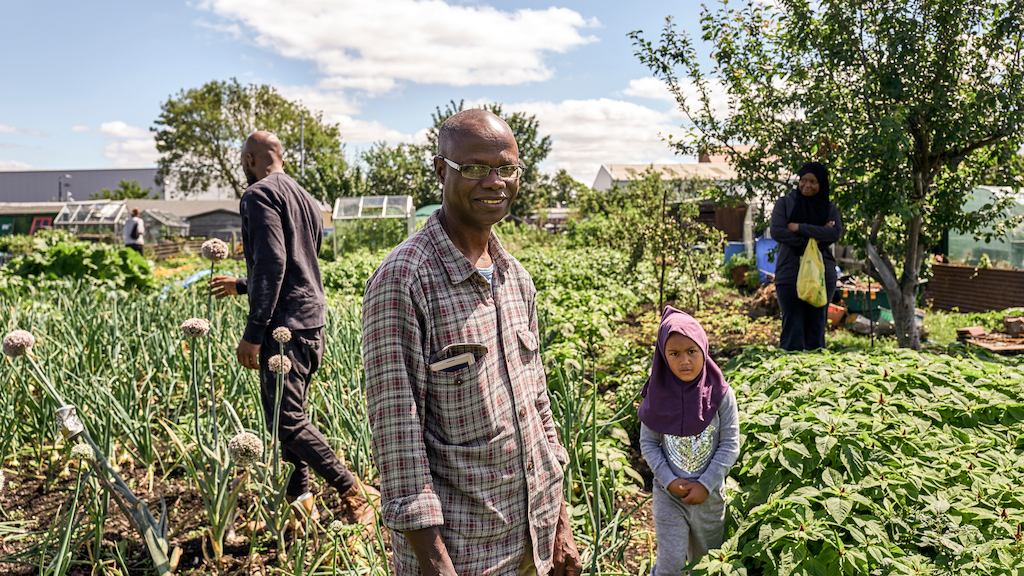There’s been a growing awareness and interest in the mental health, wellbeing and the therapeutic benefits of these kinds of activities. But we also need to recognise the importance of accessibility, and how to support the intergenerational aspect of community volunteering – which has a huge potential to bring together people of all ages.
Many of our garden leaders are over 50, and most of them are volunteers. The responsibility for managing the garden, the growing calendar, the project, volunteers and activities can be extremely demanding, so it’s crucial we’re able to properly support both the volunteer project leaders and the community of volunteers that have come to rely on these projects.
That’s why we started Growing Connections. It’s one of five projects awarded funding by the Centre for Ageing Better and Department for Digital, Culture, Media and Sport (DCMS) to pilot ways of making volunteering more age-friendly and inclusive. We’ve identified four flagship gardens which do well at including people of all ages, and are working with them to learn lessons we can share with other voluntary organisations.
Here’s a bit more information about these amazing projects:
Sydenham Garden, Lewisham is a wellbeing centre specialising in using gardening and activity rooms to support people in recovery from mental and physical ill-health. They work hard on inclusivity, from having heated greenhouses so people can work comfortably in winter to making pathways and toilets suitable for people with mobility needs.
Spitalfields City Farm, Tower Hamlets sits on land first squatted by the community to grow food almost 50 years ago. Now a well-established city farm and volunteer programme, several different groups run in the farm, including the Coriander Club, which specialises in growing herbs, salad and vegetables which are used daily by the local community.
Community plot at Whetstone Stray allotments is a grassroots community project which works with people with a range of needs, including learning and memory difficulties, many of whom are over 50. The garden has an inclusive approach and a background in social and therapeutic horticulture.
Hackney Herbal provides training in propagating, harvesting and drying herbs, and using them in food and medicines. As well as pioneering new kinds of courses, they’ve done great work to get people who were originally clients to volunteer to run them.

